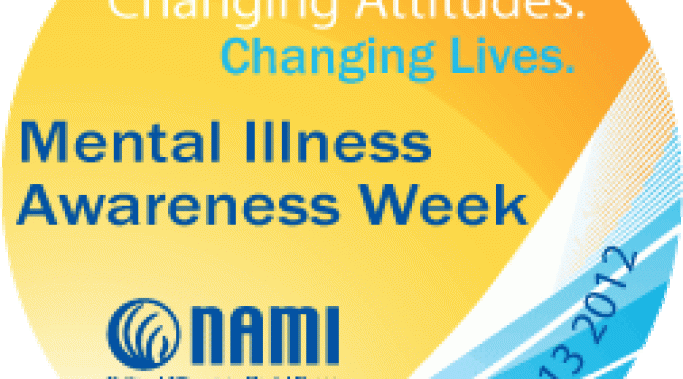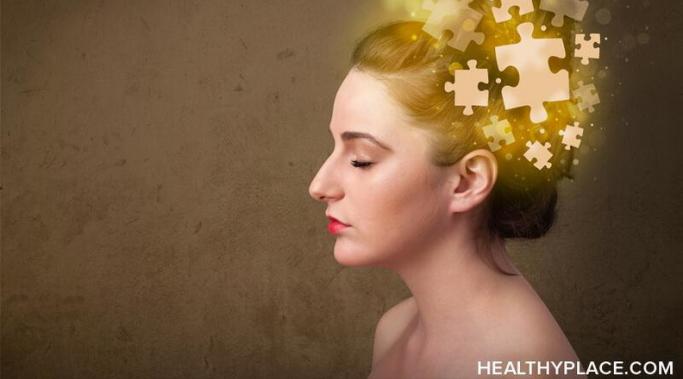Come out, come out, wherever you are!
Yes, it’s Mental Illness Awareness Week again and if you’re here, at HealthyPlace, you probably already got that memo. But you might be wondering what to actually do to promote mental illness awareness. No art exhibit, educational session or candlelight vigil in your neighbourhood? Don’t worry – anyone can promote mental illness awareness just by talking about mental health.
Understanding Mental Illness
On Monday, I wrote about the Faces of Mental Illness campaign run by the Canadian Alliance on Mental Illness and Mental Health. This campaign is part of the Mental Illness Awareness Week which is this week in Canada (next week in the U.S.).
I like this campaign, and what’s more, given by the number of people who have read and shared the article, you like it too. People like hearing from other real people who have faced real mental illnesses and come out the other side to create whole and satisfying lives for themselves. And there’s absolutely nothing wrong with that. People find it helpful and hopeful and inspiring.
But the campaign leaves out a huge segment of the mentally ill population. Where is the celebration of those who fight every day to beat their mental illness but don’t become published authors or start a non-profit?
What made you seek help for mental illness? Your answer could help people who love someone with mental illness because one of the questions I get more than any other is asked by loved ones. In short, people want to know how to help their loved ones get help for a mental illness. Some people want to know how to make their loved ones accept treatment. Some people want to know how to make their loved ones follow through with treatment, like take their medication. And some people just want to know how to convince someone that they have a mental illness.
I’m dealing with people who love someone with a mental illness who is refusing help, for one reason or another.
So I ask you – what made you get help for your mental illness?
Sometimes, probably due to my particular experiences online, I think that people will never understand mental illness. There are people who think that mental illness isn’t real; there are people that think that medication is poison; there are people that think mental illness is “all in our heads’” there are people that think that those with mental illness just have to “pull themselves up by their bootstraps.” In short, sometimes it feels like there are so many uncompassionate, ignorant, hateful people that all the writing in the world won’t make a difference.
But the thing is, my experiences aren’t necessarily indicative of the real world. And yesterday’s brunch proved that to me.
Recently, one of my search referral logs revealed the question, “Can I Become a Doctor if I Have Attempted Suicide?” This is a very specific question and I’m afraid I don’t have the technical answer to it on my site.
But the question itself saddened me. Mostly because someone would think that they couldn’t become a doctor just because of a suicide attempt. A suicide attempt should neither limit how people see you nor how you see yourself.
We’ve all heard it – the condescending notion that bipolar disorder, depression or another mental illness is “all in our heads.” This is the notion that we are not ill and that we simply think we are ill. If we stopped believing we had a mental illness, we would stop having one. Naturally, this is hogwash. But science and medicine can’t seem to convince people out of this illogical notion (Denial Keeps Those with a Mental Illness From Getting Better). I think that’s because people have their own psychological reasons for wanting to believe that mental illness is “all in our heads.” Mostly, it’s fear.
Recently a friend queried me on addiction. Specifically, would I consider addiction to be like any other serious mental illness? After all, it harms people. It helps people end up on the street. It destroys people’s lives. It sure sounds serious.
But, on the other hand, addicts are a special bunch in that their behavior caused their illness. No one made them take that first drink. No one made them snort that first line. No one made them take that first hit. They did that all on their own, and eventually, that decision spiralled into an illness. But people with mental illness like schizophrenia or bipolar disorder get there without any hitting, drinking or snorting of any kind. Their mental illness hits them spontaneously.
So the question is, is addiction just another mental illness?
In my line of work I run into many people engaged in the mental health system in different ways. Many people are patients, naturally, but many are the loved ones of patients as well. And some of these loved ones are parents. And some of these patients are children.
I have publically stated previously how shaky I am on the concept of children and mental illness; which is to say that I’m very critical of labelling children with a mental illness when we don’t even have formal diagnostic criteria for mental illness in children (except for things like ADHD/ADD). I’ve also said that I’m even more critical of putting children with their growing brains on psychotropic medication when we aren’t even fully aware of what these medications will do to adult brains long-term, let alone developing ones.
Nevertheless, parents don’t have to justify their child’s mental illness or the treatment of that mental illness to me or anyone else.
Recently I wrote about how people tend to ignore suicide threats online. And one of the reasons people ignore these threats is because they don't take them seriously. Some people even believe that suicide threats are just a cry for attention.
Self-esteem is a funny thing. I think we’re all born with it but somewhere along the way it gets damaged for many of us. Self-esteem is simply: “a realistic respect for or favorable impression of oneself; self-respect.” And yet many of us feel pretty much the opposite. We feel an unreasonable disrespect or unfavorable impression of ourselves.
And mental illness may be one reason why.



![MP900387256[1]](/sites/default/files/styles/blog_listing/public/uploads/2012/09/MP9003872561.jpg?itok=g3_xsZTm)





